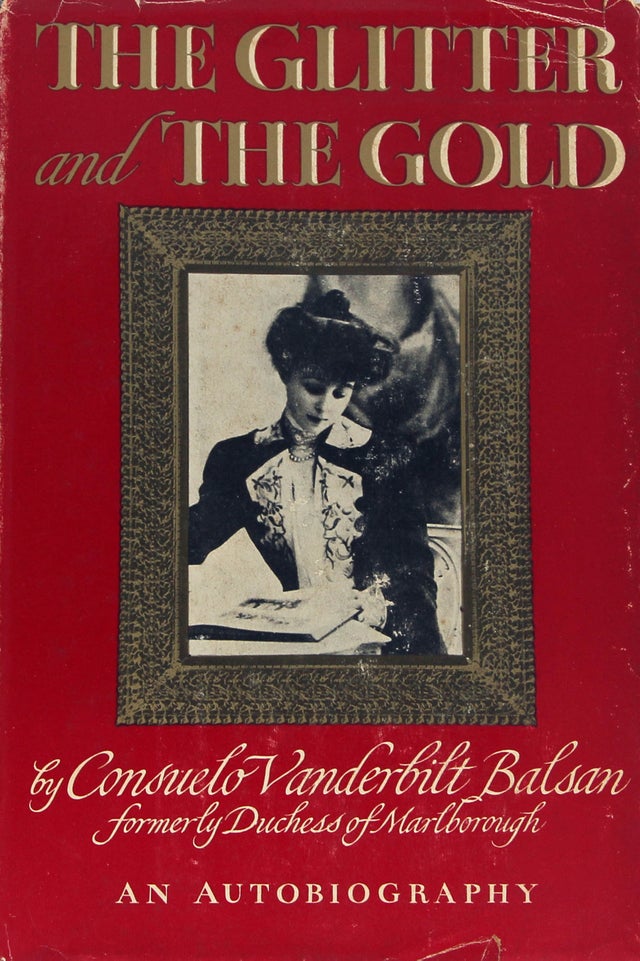- Social History
- >
- Association Copy, The Glitter and the Gold
Association Copy, The Glitter and the Gold
[Association Copy] Balsan, Consuelo Vanderbilt. The Glitter and the Gold. First Edition. 1952. Book and dust jacket are both in very good minus condition. There is soiling to the upper page edges, mild discoloration to the flyleaf, a third-party gift inscription; and occasional pencil notations in the text. Th jacket shows mild soiling to the back cover, minor edge tears and light creasing. This is a difficult book to find in decent jacket, and this copy is an above-average example. The flyleaf contains an inscription from Sir Shane Leslie, a first cousin of Winston Churchill, which reads, “[A]s cousin and friend of the late Duke of Marlborough I should like to testify to the generosity and kindly tact of the authoress—Shane Leslie.”
There is nearly more going on behind the scenes in Consuelo Vanderbilt Balsan’s 1952 memoir than there is in its pages. It’s a lot to unpack. Consuelo had been the most famous of the Gilded Age’s “dollar princesses,” the American heiresses whose families bartered large doweries for social prestige through marriage into the European nobility. As she relates in this memoir, she was forced by her domineering mother, Alva, into a loveless marriage with the Duke of Marlborough. It’s grist for an Edith Wharton novel (and in fact, it was—Consuelo is the basis for one of the characters in Wharton’s Buccaneers). The marriage had long since been over by the time of this memoir, which was “blue-penciled” by her son before it went to press. He was the current duke and did not wish for his father (and the Marlborough dukedom) to be portrayed in a negative light. Hence, the favorable inscription in this copy by an extended member of the Marlborough family. (Privately, Winston Churchill, the Sunny’s first cousin, was not so pleased, but he forgave his erstwhile in-law and longtime friend, cabling her after the book’s publication in June 1953, “Blenheim, Sunday night. A wonderful day here. Many memories and thoughts of you. Love Winston.”)
“A title still evokes particular relish and ‘Your Grace’ is at times pronounced with almost reverent unction. I still recall with mirth an occasion when a clergyman before luncheon one day addressed my husband thus: ‘May I say grace, Your Grace?”
--Consuelo Vanderbilt Balsan





